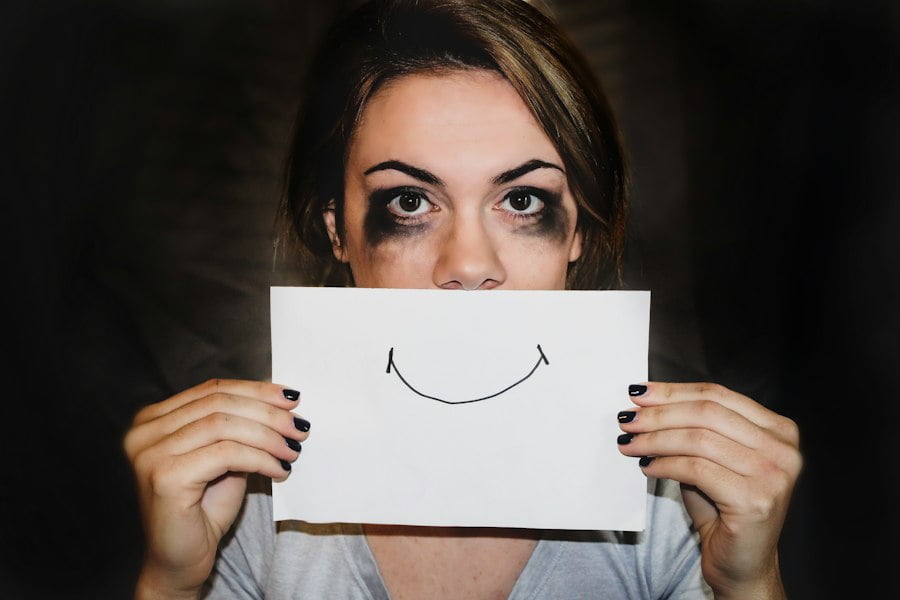
Exploring Effective Alternatives: Natural Therapies for Managing Anxiety
Anxiety is a common mental health condition that affects millions of people worldwide. It is characterized by excessive worry, fear, and apprehension, which can interfere with daily life and overall well-being. While traditional medication is often prescribed to manage anxiety, many individuals are seeking alternative therapies that are more natural and holistic. Natural therapies for anxiety management offer a range of benefits, including fewer side effects and long-term benefits. In this article, we will explore the different types of natural therapies available and their effectiveness in managing anxiety.
Key Takeaways
- Natural therapies can be effective in managing anxiety.
- Anxiety disorders can manifest in various physical and emotional symptoms.
- Alternative therapies can provide benefits such as reducing stress and promoting relaxation.
- Mind-body therapies like yoga and meditation can help manage anxiety by calming the mind and body.
- Art therapy and music therapy can be used as creative outlets to manage anxiety.
Understanding Anxiety Disorders and Their Symptoms
Anxiety disorders are a group of mental health conditions that involve excessive and persistent worry or fear. There are several different types of anxiety disorders, including generalized anxiety disorder (GAD), panic disorder, social anxiety disorder, and specific phobias. Each type of anxiety disorder has its own set of symptoms and triggers.
Common symptoms of anxiety disorders include restlessness, irritability, difficulty concentrating, muscle tension, sleep disturbances, and panic attacks. These symptoms can vary in severity and can significantly impact an individual’s quality of life. It is important to recognize the signs of anxiety disorders and seek appropriate treatment.
Benefits of Alternative Therapies for Anxiety
When it comes to managing anxiety, traditional medication is often the first line of treatment. However, many individuals are turning to alternative therapies as a natural and holistic approach to managing their symptoms. Natural therapies offer several benefits compared to traditional medication.
One of the main advantages of natural therapies is the reduced risk of side effects. Traditional medications for anxiety often come with a range of side effects, including drowsiness, dizziness, nausea, and sexual dysfunction. Natural therapies, on the other hand, typically have fewer side effects and are generally well-tolerated.
Another benefit of natural therapies is their potential for long-term benefits. While traditional medication may provide temporary relief from anxiety symptoms, natural therapies can help individuals develop coping mechanisms and strategies to manage their anxiety in the long run. This can lead to a more sustainable and holistic approach to anxiety management.
Mind-Body Therapies for Anxiety Management
| Mind-Body Therapy | Effectiveness for Anxiety Management | Research Evidence |
|---|---|---|
| Meditation | Highly effective | Multiple studies have shown significant reduction in anxiety symptoms |
| Yoga | Effective | Studies have shown reduction in anxiety symptoms, but more research is needed |
| Tai Chi | Effective | Studies have shown reduction in anxiety symptoms, but more research is needed |
| Progressive Muscle Relaxation | Effective | Studies have shown reduction in anxiety symptoms, but more research is needed |
| Cognitive Behavioral Therapy | Highly effective | Considered the gold standard for anxiety treatment, with numerous studies supporting its effectiveness |
Mind-body therapies are a type of natural therapy that focuses on the connection between the mind and body. These therapies aim to promote relaxation, reduce stress, and improve overall well-being. Two common mind-body therapies for anxiety management are cognitive-behavioral therapy (CBT) and mindfulness meditation.
Cognitive-behavioral therapy is a type of talk therapy that helps individuals identify and change negative thought patterns and behaviors that contribute to their anxiety. It is a highly effective treatment for anxiety disorders and has been shown to reduce symptoms and improve overall functioning.
Mindfulness meditation involves focusing one’s attention on the present moment without judgment. It has been shown to reduce anxiety symptoms by promoting relaxation and increasing self-awareness. Research has also found that mindfulness meditation can improve emotional regulation and reduce stress levels.
Herbal Remedies and Supplements for Anxiety Relief
Herbal remedies and supplements have long been used as natural remedies for various health conditions, including anxiety. Some commonly used herbal remedies for anxiety relief include valerian root, passionflower, and chamomile. These herbs have calming properties and can help promote relaxation.
In addition to herbal remedies, certain supplements have also been found to be effective in managing anxiety. Omega-3 fatty acids, for example, have been shown to reduce symptoms of anxiety by reducing inflammation in the brain. Other supplements such as magnesium, L-theanine, and ashwagandha have also been found to have calming effects.
While herbal remedies and supplements can be effective in managing anxiety, it is important to note that they are not regulated by the FDA and may interact with other medications. It is always recommended to consult with a healthcare professional before starting any new herbal remedy or supplement.
Acupuncture and Acupressure for Anxiety Relief

Acupuncture and acupressure are ancient Chinese practices that involve stimulating specific points on the body to promote healing and balance. These practices have been found to be effective in managing anxiety by promoting relaxation and reducing stress.
Acupuncture involves the insertion of thin needles into specific points on the body. It is believed to stimulate the flow of energy, or qi, and restore balance in the body. Research has shown that acupuncture can reduce symptoms of anxiety and improve overall well-being.
Acupressure, on the other hand, involves applying pressure to specific points on the body using fingers, hands, or special tools. It is a non-invasive alternative to acupuncture and can be easily performed at home. Acupressure has been found to reduce anxiety symptoms by promoting relaxation and reducing muscle tension.
Massage Therapy and Aromatherapy for Anxiety Management
Massage therapy and aromatherapy are two natural therapies that can be effective in managing anxiety. Massage therapy involves the manipulation of soft tissues in the body to promote relaxation and reduce muscle tension. It has been found to reduce symptoms of anxiety by increasing levels of serotonin and dopamine, neurotransmitters that promote feelings of well-being.
Aromatherapy involves the use of essential oils derived from plants to promote relaxation and reduce stress. Certain essential oils, such as lavender and chamomile, have calming properties and can help alleviate anxiety symptoms. Aromatherapy can be used through inhalation, massage, or added to bathwater.
While massage therapy and aromatherapy can be beneficial for anxiety management, it is important to note that they may not be suitable for everyone. Individuals with certain medical conditions or sensitivities may need to exercise caution when using these therapies. It is always recommended to consult with a healthcare professional before starting any new therapy.
Yoga and Meditation for Anxiety Relief
Yoga and meditation are two natural therapies that have been practiced for centuries to promote relaxation and reduce stress. Both practices involve focusing on the breath, promoting mindfulness, and increasing self-awareness.
Yoga combines physical postures, breathing exercises, and meditation to promote relaxation and reduce anxiety. It has been found to be effective in reducing symptoms of anxiety by increasing levels of GABA, a neurotransmitter that helps regulate mood.
Meditation involves focusing one’s attention on a specific object, thought, or activity to promote relaxation and reduce stress. It has been shown to reduce symptoms of anxiety by promoting a sense of calm and improving emotional regulation.
Research has consistently shown that both yoga and meditation can be effective in managing anxiety. They can be practiced individually or in combination with other therapies for maximum benefit.
Art Therapy and Music Therapy for Anxiety Management
Art therapy and music therapy are two alternative therapies that can be effective in managing anxiety. These therapies involve engaging in creative activities to promote self-expression, reduce stress, and improve overall well-being.
Art therapy involves using various art materials and techniques to express emotions and explore personal experiences. It has been found to be effective in reducing symptoms of anxiety by promoting self-awareness and providing a creative outlet for emotions.
Music therapy involves listening to or creating music to promote relaxation and reduce stress. It has been shown to reduce symptoms of anxiety by increasing feelings of calm and improving mood.
Both art therapy and music therapy can be used as standalone therapies or in combination with other treatments for anxiety management. They offer a unique way to explore emotions and promote self-care.
Integrating Natural Therapies into Your Anxiety Management Plan
Natural therapies offer a range of benefits for individuals seeking alternative approaches to managing their anxiety. From mind-body therapies to herbal remedies and supplements, there are many options available that can help alleviate symptoms and improve overall well-being.
It is important to remember that natural therapies are not a substitute for professional medical advice. It is always recommended to speak with a healthcare professional before starting any new anxiety management plan. They can provide guidance and ensure that the chosen therapies are safe and appropriate for individual needs.
In conclusion, integrating natural therapies into an anxiety management plan can provide individuals with additional tools and strategies to cope with their symptoms. By taking a holistic approach to anxiety management, individuals can find relief and improve their overall quality of life.
FAQs
What are alternative therapies for anxiety?
Alternative therapies for anxiety are non-traditional treatments that can help alleviate symptoms of anxiety. These therapies can include things like acupuncture, meditation, yoga, aromatherapy, and more.
Are alternative therapies for anxiety effective?
While the effectiveness of alternative therapies for anxiety can vary from person to person, many people have found relief from their anxiety symptoms through these treatments. It’s important to note that alternative therapies should not be used as a replacement for traditional medical treatment, but rather as a complementary approach.
What are some examples of alternative therapies for anxiety?
Some examples of alternative therapies for anxiety include acupuncture, meditation, yoga, aromatherapy, massage therapy, and herbal supplements.
How do alternative therapies for anxiety work?
Alternative therapies for anxiety work in a variety of ways. For example, acupuncture is thought to work by stimulating specific points on the body to release tension and promote relaxation. Meditation and yoga can help calm the mind and reduce stress, while aromatherapy uses essential oils to promote relaxation and reduce anxiety.
Are there any risks associated with alternative therapies for anxiety?
While many alternative therapies for anxiety are generally considered safe, there can be risks associated with certain treatments. For example, some herbal supplements can interact with prescription medications, and acupuncture can cause bruising or bleeding if not performed correctly. It’s important to talk to a healthcare provider before starting any new treatment.
Can alternative therapies for anxiety be used in conjunction with traditional medical treatment?
Yes, alternative therapies for anxiety can be used in conjunction with traditional medical treatment. In fact, many healthcare providers recommend a combination of treatments for anxiety, including medication, therapy, and alternative therapies. It’s important to talk to a healthcare provider before starting any new treatment.













